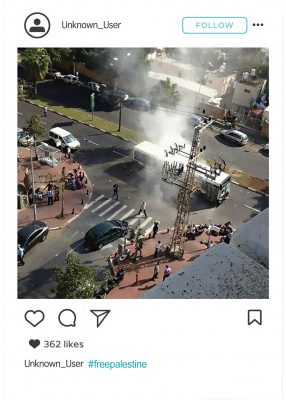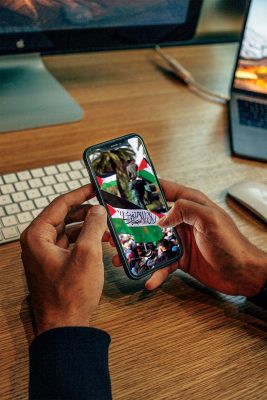×


We have detected your country as:
Please click here to go to the USA website or select another country from the dropdown list.
by: Ilse Strauss, News Bureau Chief
 On an otherwise run-of-the-mill late winter afternoon in March, a terrorist went on a stabbing spree in the desert city of Beersheva. When Mohammad Ghaleb Abu al-Qi’an’s bloody work was finally halted by an armed bus driver’s bullet, he left a grisly trail of four Israelis dead and two wounded, making it Israel’s deadliest terror attack in decades.
On an otherwise run-of-the-mill late winter afternoon in March, a terrorist went on a stabbing spree in the desert city of Beersheva. When Mohammad Ghaleb Abu al-Qi’an’s bloody work was finally halted by an armed bus driver’s bullet, he left a grisly trail of four Israelis dead and two wounded, making it Israel’s deadliest terror attack in decades.
The carnage inspired other prospective terrorists to take to the streets, sparking Israel’s deadliest terror wave in years and its bloodiest month in over a decade. At the time of this writing, 19 people have been murdered and dozens injured.
Israeli and international leaders alike have condemned the killings. Surprisingly, Palestinian Authority (PA) President Mahmoud Abbas also chimed in, denouncing two of the attacks. He was, however, a lone voice among the Palestinian powers-that-be. In fact, the majority of Fatah (leading secular Palestinian political party), Hamas and Palestinian Islamic Jihad leaders applauded the bloodshed, hailing the murders as “heroic” and calling for more of the same.
Disturbing? Absolutely. Sickening? Most certainly. But perhaps the opinion of those who sit in office presiding over the everyday man on the street is the lesser of two evils.
 What was even more alarming—and infinitely more dangerous—than the opinion of lawmakers whom the majority of Palestinians regard as corrupt and undesirable anyway, was the flood of praise and incitement on social media. As the terror attacks mounted, flurries of posts on Facebook, Twitter, Instagram and TikTok venerated the so-called martyrs and called on Palestinians to sustain, even perpetuate the bloodshed.
What was even more alarming—and infinitely more dangerous—than the opinion of lawmakers whom the majority of Palestinians regard as corrupt and undesirable anyway, was the flood of praise and incitement on social media. As the terror attacks mounted, flurries of posts on Facebook, Twitter, Instagram and TikTok venerated the so-called martyrs and called on Palestinians to sustain, even perpetuate the bloodshed.
And in a society where social media fame and online renown serve as one of the main motivators to spur on and influence the youth, the call can be irresistible.
The Times of Israel sifted through the online hatred to compile a sample of the incitement that bombard the Palestinian youth. It is a sickening laundry list of graphic footage of the terror attacks set to rousing music, stirring songs revering the terrorists, graphics, images and grim cartoons celebrating their alleged blood sacrifices for the supposed freedom of Palestine and its people, appalling official statements, commentaries praising the attacks and so forth.
 These Facebook, Twitter and Instagram posts—some originating from official Fatah, Hamas and Islamic Jihad officials and channels—received multiple likes, hearts and thumbs up, and were shared widely.
These Facebook, Twitter and Instagram posts—some originating from official Fatah, Hamas and Islamic Jihad officials and channels—received multiple likes, hearts and thumbs up, and were shared widely.
One particularly disturbing post set actual footage of a terror attack in Bnei Brak in which five people were brutally butchered and images of the terrorist’s victims—bloodied and slumped over in death—as the background graphics for a jaunty song telling Israelis, “You will see hell and its gates will open on the Day of Resurrection.”
Another post that proved popular among Palestinian social media users is a song originally produced and shared by the Islamic Jihad’s Filastin al-Yawm channel, boasting, “Allah blessed the champions of Jenin [the hometown of the Palestinian terrorist who killed five people, including an Israeli Arab, in the Bnei Brak attack] with a Molotov cocktail and a knife.”
According to the Times of Israel, the Hamas mouthpiece Falastin also uploaded a number of videos featuring children expressing their joy, delight and admiration for the terrorists—all receiving hundreds of likes.
Then there are, of course, the countless posts featuring pictures, posters and placards of the terrorists—their faces embossed against the coat of arms of the Palestinian organization that claimed them as members—singing the praises of their bloody exploits and venerating them to the point of national heroes worthy of emulation.
And therein lies the rub.
 Social Media Glorification
Social Media GlorificationThe vast majority of the terrorists responsible for Israel’s deadliest terror wave in years and the bloodiest month in over a decade were mostly teenagers, youngsters and lone-wolf operators. The implication? These young terrorists were not dispatched to kill by the head of a Palestinian terror organization. Instead, they were motivated, urged on by something else.
As I scrolled through the sickening social media glorification of terror, mayhem and murder, I recalled a conversation I had with an 18-year-old boy a few months ago. As we discussed role models and the people he looked up to, he whipped out his phone, opened his Instagram account and proudly pointed out his heroes: other teenagers or young men or women who had somehow climbed the oh-so-desirable pedestal of online notoriety, people just like him who somehow managed to rake in the hearts, likes and thumbs up.
“If I could just be like them,” he breathed, his eyes shining with admiration.
Yes, therein lies the rub.
Scrolling through the sickening social media glorification of Palestinian teenagers, youngsters and lone-wolf operators who had climbed the oh-so-desirable pedestal of online notoriety, who raked in the hearts, likes and thumb ups by shedding innocent blood, I couldn’t help but wonder how many other Palestinian teenagers and youngsters are scrolling through their Facebook, Twitter, Instagram, Snapchat and TikTok feeds, their eyes shining with admiration, breathing, “If I could just be like them.
Photo Credit: Click on photo to see photo credit
Photo License: Terror Attack
All logos and trademarks in this site are property of their respective owner. All other materials are property of Bridges for Peace. Copyright © 2024.
Website Site Design by J-Town Internet Services Ltd. - Based in Jerusalem and Serving the World.